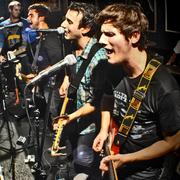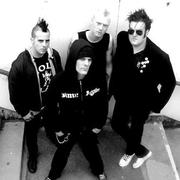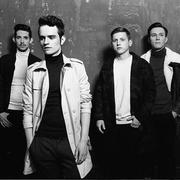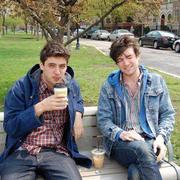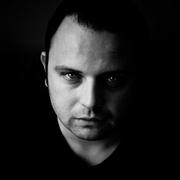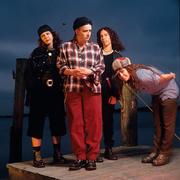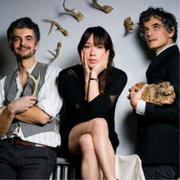Blonde Redhead
| 基本信息 | |||
|---|---|---|---|
| 姓名 | Blonde Redhead | 别名 | 暂无 |
| 国籍 | 美国 | 出生地 | |
| 语言 | 性别 | 组合 | |
| 生日 | 星座 | ||
| 身高 | 体重 | ||
Blonde Redhead成立于1993年,由日籍女歌手Kazu Makino和来自意大利的孪生兄弟Amedeo Pace & Simone Pace所组成.乐队刚出道便常被外界拿来与Sonic Youth作比较,这并非因为他们的处女碟是由Sonic Youth的鼓手Steve Shelley所制作,而是其嘈杂刺耳的吉他声,密集的编曲均为早期Sonic Youth的标志性元素.于是,乐队的风格也被定义为no-wave,噪音摇滚.事实上,初期的Blonde Redhead确是噪音美学虔诚的继承者,他们前两张专辑急促且富侵略色彩的音乐,让许多no-wave歌迷惊喜不已,乐队也很快受到肯定,转到了indie界较著名的厂牌Touch&Go旗下.可惜其间只发行了三张不过不失的专辑,虽颇受业界好评,却得不到歌迷的青睐.而且这几张专辑也愈加软化,即使依然坚持以噪音吉他为主线,振奋程度已大不如前,也许是想脱离Sonic Youth的影响另辟新路,想改变却又约束着.在2000年发行完专辑后,乐队几乎进入了沉寂期.时隔四年,他们竟以4AD旗下乐队的身份发行了名为的专辑,这一举动可真惊诧了不少人,因为4AD是一个倾向唯美风格的厂牌,即便当年曾签过数支noise-pop乐队,也都是飘逸派的,与Blonde Redhead的杂乱,尖锐可谓相去甚远.Blonde Redheads noisy, dissonant guitars, alternate tunings, and quiet, stilted lyrics have often been compared to early Sonic Youth. After randomly meeting at an Italian restaurant in New York, Japanese art students Kazu Makino and Maki Takahashi and Italian twin brothers Simone and Amedeo Pace formed the band in 1993. The name was taken from a song by the 80s no wave band DNA. With Makino and Amedeo on guitars and vocals, Simone on drums, and Takahashi on bass, the bands chaotic, artistic rock caught the attention of Sonic Youth drummer Steve Shelley, who produced and released the bands debut album, Blonde Redhead, on his Smells Like Records label. Shortly after the albums release, Takahashi left the band. The remaining members continued as a trio, releasing a second album in 1995 on Shelleys label, titled La Mia Vita Violenta. For their 1997 release Fake Can Be Just as Good, recorded on Touch and Go, the trio was joined by guest bass player Vern Rumsey from Unwound. By 1998, the band eliminated bass and scaled back to guitars, drums, and vocals for In an Expression of the Inexpressible. Melody of Certain Damaged Lemons and the Melodie Citronique EP followed two years later. The bands first for 4AD, Misery Is a Butterfly, was released in spring 2004. For 2007s 23, the group opted for a mix of dream-pop and delicate electronic textures.
 加载评论内容,请稍等......
加载评论内容,请稍等......




